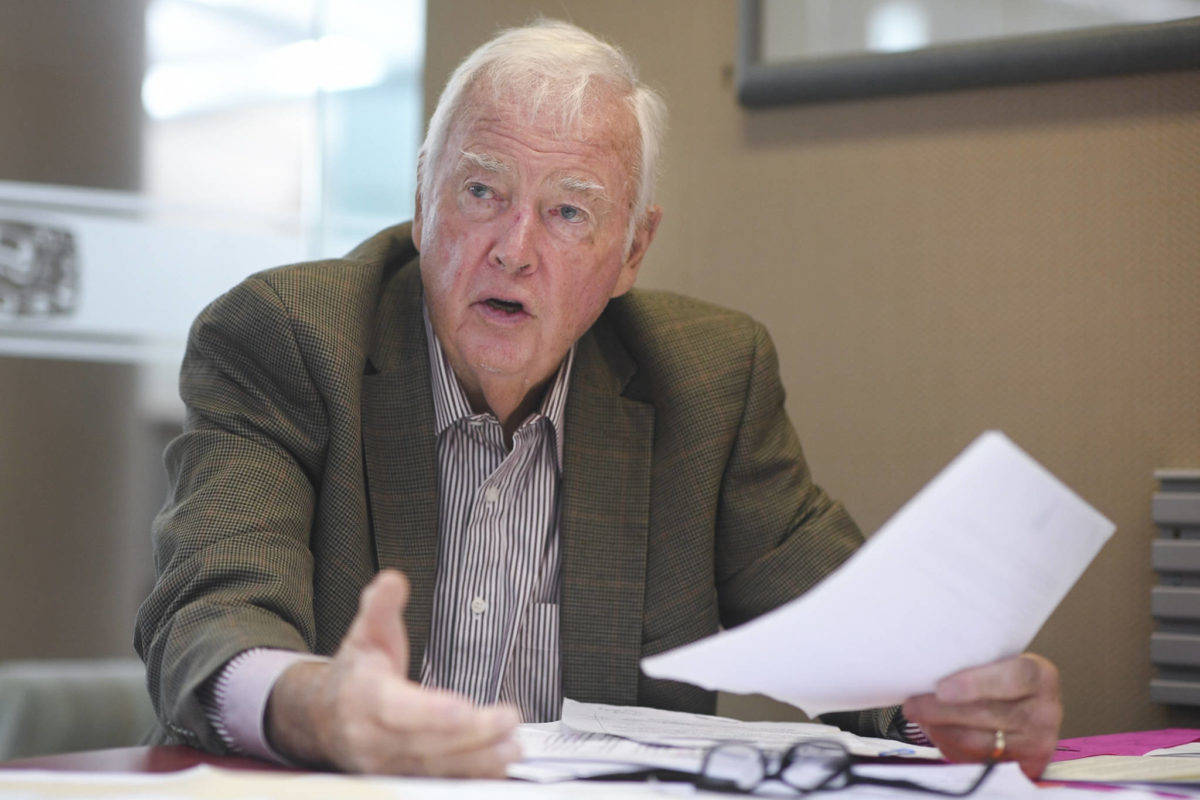By Frank Murkowski
The government of Canada recently announced that cruise ship arrivals and departures from Canadian ports will be canceled until February 2022. This comes as a shock to our entire state.
Prior to the advent of the coronavirus it was estimated that cruise ship visitors to Alaska for the current year could be as many as 1.2 million. Polling indicates that the majority of all U.S cruise ship passengers have chosen Alaska as their No. 1 preferred destination. That dream has evaporated. The timing of the announcement is devastating on Alaska’s economy.
The Canadian government, because of the pandemic, has restricted Alaska-bound vehicle traffic entering British Columbia from Washington state. The exception is for “essential” travel only. This is also true from southbound traffic originating in Alaska. The southeastern routes from Haines and Skagway north are both restricted to essential traffic only. The stark reality is that Alaska finds itself totally dependent on air transportation both north and south for at least the term of the virus.
[Congressional delegation: Canada’s cruise ban is unacceptable]
The Canadian announcement leaves Alaskans with two alternatives — one of which is seeking a waiver from federal law that prohibits the carriage of American cargo or passengers between two American ports.
Yes, it may be possible to get a waiver for the law. It has been done twice. A few years ago, Nome was running low of diesel and the U.S. supply vessel was delayed. Approval was granted for assistance by a Russian vessel to help bring in foreign supply. Earlier, under Governors Egan and Hickel, another waiver was granted when the state acquired from Northern Europe the Wickersham, which operated as an Alaskan ferry with an Alaskan crew from Prince Rupert to Alaska ports, as well as between ports within Alaska. The ship was sold after the Jones Act waiver expired.
So where does that leave Alaska now? I’d say high and dry.
We have the Alaska Marine Highway System, certainly well-rested, but without much interest or direction from the state Legislature, the administration or the Department of Transportation and Public Facilities. So we are facing a statewide emergency, yet we have four out of 10 vessels that are of a mainline capability to serve Alaska from the Lower 48. The Malaspina, Columbia, Matanuska and the Kennicott. Each has a capacity of almost 500 passengers and roughly 109 vehicles.
Relief from the financial implication of operating two main line vessel with one from Bellingham to Juneau and the other from Bellingham to Seward or Whittier, could come from the U.S. Transportation Department Secretary’s announcement that $25 billion in federal funding allocations would be available to help the nation’s public transportation system respond to COVID-19. The act was signed by the President. The announcement stated that $2.7 billion would be allotted to large and small urban areas and another $2.2 billion for rural areas. Funding will be 100% federal with no local match required and can be used for operation needs which fits right Into the needs of AMHS.
I would suggest that the state request immediate emergency assistance from the federal DOT. In addition, propose an aggressive advertising effort both in and outside Alaska stating that “Alaska is open” with weekly sailings on a Southeast route and the other cross gulf to Seward or Whittier. If the rates are reasonable, the traffic will come. We must be ready and have the will to make the best of a difficult situation while under Covid-19 limitations.
I would encourage the congressional delegation and our governor to make Alaska’s case for an emergency declaration. We are twice the size of Texas. Imagine if Texas roads were closed at state lines, the roads to Mexico were closed and the only way out was by the gulf ports. A state declaration for immediate relief would be called.
Our economy is in free fall, and it may get worse.
So here we are Alaska. No way in and no way out except by air. That’s what I’d call high and dry.
• Frank Murkowski is a former U.S. senator, eighth governor of Alaska and a retired banker. Columns, My Turns and Letters to the Editor represent the view of the author, not the view of the Juneau Empire. Have something to say? Here’s how to submit a letter to the editor or My Turn.

